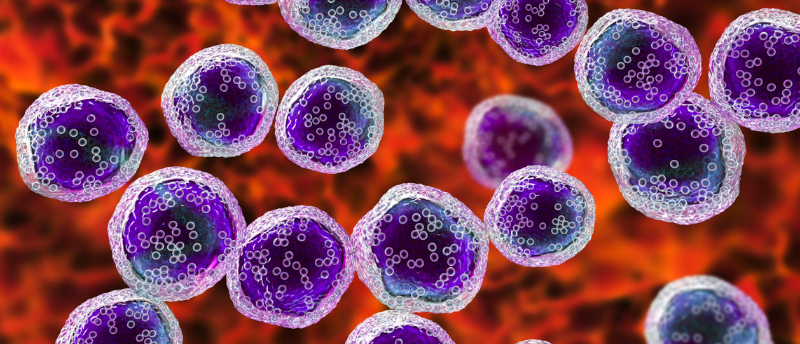CAR-T is not harmful in lymphoma remission phenomenon

Whether or not to administer CAR-T cell therapy to cancer patients who go into remission during the therapy manufacturing window has long been a largely uninformed decision. The findings of a recent study reveal that administering CAR-T therapy to patients in remission from large B-cell lymphoma does not produce adverse health effects.
CAR-T cell therapy is an immunotherapy that consists of a patient’s T cells that have been extracted and engineered to display chimeric antigen receptors (CARs) that target and bind cancer cell-specific proteins. These CAR-T cells are expanded in the laboratory and infused back into the patient, where they should continue to expand and kill cancer cells that possess the antigens that the CAR-T cells target [1].
The process of developing these personalized cell therapies takes 3 to 5 weeks. During this, patients are often subject to supplementary cancer treatments, like chemotherapy, to dampen the effect of the cancer. Researchers have identified a phenomenon where some lymphoma patients go into remission during this waiting period, which raises the question of whether CAR-T should be administered upon completion of its manufacture.
Learn more about CAR-T with our eBook
In this eBook, learn more about the challenges in translating CAR-T therapies from the lab to the clinic and learn about the benefits, risks, current status and future directions of treating B-cell lymphomas with these therapeutics.
This is the question investigated in a recent study led by scientists from the Sylvester Comprehensive Cancer Center at the University of Miami Miller School of Medicine (FL, USA). Researchers analyzed records from the Center for International Blood and Marrow Transplant Research (WI, USA) of over 5,000 patients with relapsed/refractory large B-cell lymphoma who received CAR-T therapy. They found a group of 134 patients who had gone into complete remission before receiving CAR-T therapy.
Patients who were in remission when they received CAR-T had a 43% probability of progression-free survival. There was a similar probability of progression-free survival for the patients who were not in remission at the time of treatment.
While this study doesn’t answer whether cell therapy is the right course of action in the case of remission, it shows that it does not produce adverse effects.
Trent Wang, who will present the findings at the 65th American Society of Hematology Annual Meeting and Exposition (9–12 December, 2023; CA, USA) , reaffirmed the takeaway of the study, “I don’t think it answers the question of should we give these patients cell therapy, but I think it answers the question that we can – that it’s safe and that it’s a reasonable strategy when you’re in that spot.”